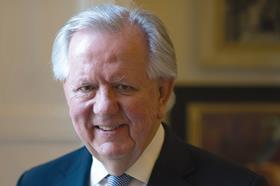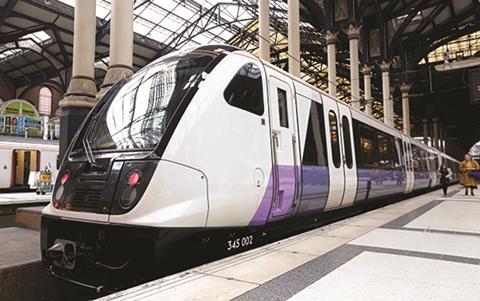We are a nation divided. The last election resulted in the two-party system reasserting itself, but few voters have much confidence in either.

Central to this sense of dissatisfaction is rank inequality. The country is more divided between haves and have-nots than ever. While poverty and gentility exist side by side in the capital, in general the divide is geographic. London and the South East are doing well while the north lags seriously behind.
This is partly because of the decline in manufacturing, which hit the north disproportionately. But one of the consequences of the banking crisis was also the massive use of quantitative easing – how bankers describe what you and I know as printing money. One of its most corrosive impacts is that those with assets have seen their value rise substantially while those without see no improvement whatever in their living standards.
Mrs May told us on the steps of parliament as she accepted the leadership of her party and the country that this was her top priority. So given that you don’t make the poor richer by making the rich poorer what should we be doing to rectify the situation?
Two obvious priorities present themselves – education and connectivity. Education in its broadest sense to encourage more students to study key subjects such as maths and physics, while we get more women to see engineering as a career and develop our vocational training offering. The government talks about this, but there is precious little sign of real action.
And connectivity, because endless studies show that this produces productivity, which in turn generates wealth. George Osborne gave us the vision of the ‘northern powerhouse’, but we have seen little sign of words being followed by action.
This is not just about connecting the two great cities of Leeds and Manchester more efficiently, although the current laughingly named Trans Pennine Express takes an hour to do the 40-mile journey, which is not most people’s definition of express.
It is about investment in bringing the 10 million people who live in that great civic band between Liverpool and Hull together in a way that allows them to do business much more efficiently than they do now.
These are great cities full of entrepreneurial businesses large and small and we ignore them at our nation’s cost. The programme will cost billions but the longest journey starts with a single step.
On the wrong track
Meanwhile, in the capital, somebody has to say that the problem with Crossrail 2, the old Chelsea-Hackney line, is that its route was settled in 1970 – just about half a century ago. The King’s Road station now makes no sense. People who live there pay staggering prices despite the technical lack of public transport largely because they don’t need it.
And while London’s mayor resists altering the green belt, we can kiss goodbye to major housing and job creation in places such as Chessington South, the product of which could help finance a scheme that is already costing twice as much as the Elizabeth line.

Given that London needs better connectivity, the next line should start with a blank sheet of paper rather than pursuing an outdated scheme that has literally lost its way.
In the end, government is about choices. It should choose northern investment to help alleviate gross inequality. It should tell London’s mayor to rethink Crossrail 2 to ensure London gets the new investment where it needs it most.
Mrs May was right. Inequality is indeed the greatest threat to our political stability and cohesion as a nation. It is a blight on our politics. But she and her cabinet colleagues must now turn words into action.






























No comments yet